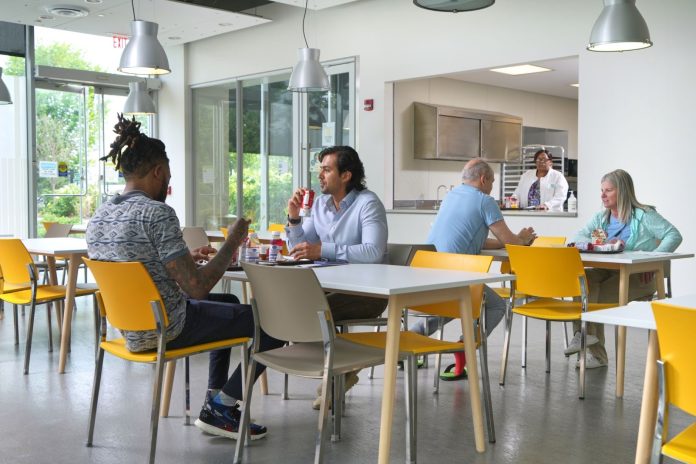Medical research volunteers are the unsung heroes of healthcare advancement. Their contributions to clinical trials pave the way for groundbreaking treatments and potentially life-saving medications. Biotrial, a leading clinical research organization, has been at the forefront of facilitating these crucial studies and has recently shared some inspiring stories from their participants.
For those interested in becoming part of this important mission, Biotrial offers opportunities to participate in paid clinical studies. By signing up, individuals can contribute to medical progress, earn extra money, and receive high-quality medical care.
The Impact of Volunteer Participation
Clinical trials are the backbone of medical progress, bridging the gap between scientific discovery and real-world application. Without the dedication of volunteer participants, the development of new medications and treatments would come to a standstill. These trials provide essential data determining whether a medication is safe and effective, ultimately shaping its approval process.
Safety is paramount in the approval of new medications. Clinical trials rigorously test these drugs, with volunteer participants playing a crucial role in identifying potential side effects and adverse reactions. They serve as the first line of defense, protecting future patients from harm by helping to assess a medication’s safety profile.
Discover More → https://www.biotrial.us/studies/
Stories of Hope and Courage
Biotrial has collected numerous stories from participants who have found the experience rewarding and meaningful. These accounts highlight not only the personal benefits but also the broader impact on medical research.
Barbara’s Journey with Non-Hodgkin’s Lymphoma
Barbara Mooney, diagnosed with non-Hodgkin’s lymphoma in October 1999, initially feared she wouldn’t see her grandchildren grow up. Thanks to her participation in clinical trials, she now babysits her three great-grandchildren. “I would never have dreamed of it,” Mooney said. “Let me tell you, it is a blessing.”
Rollie’s Battle with Prostate Cancer
Rollie Swingle, diagnosed with stage IV prostate cancer in 2004, credits clinical trials for his survival. “Some people think it’s risky to participate in trials,” he said. “For me, being in clinical trials has kept me alive and healthy. I honestly don’t think I would be here today without them.”
Elizabeth’s Lung Cancer Milestone
Elizabeth Lacasia recently celebrated the 10th anniversary of her lung cancer diagnosis. Through an innovative clinical trial, she received a combination treatment and is doing well. Lacasia is now passionate about helping other lung cancer patients, sharing her experience and perspective on battling the disease.
The Benefits of Participating in Clinical Trials
Participating in clinical trials offers numerous advantages, both for the individual and for society at large. Here are some key benefits:
- Advancing Medical Research: Volunteers help researchers understand how new medications work, their benefits, and potential risks.
- Access to Cutting-Edge Treatments: Participants often gain access to innovative therapies before they’re widely available.
- Comprehensive Medical Care: Clinical trial participants receive high-quality medical care and close monitoring throughout the study.
- Financial Compensation: Many trials offer payment for participation, providing an opportunity to earn extra income.
- Personal Satisfaction: Knowing that one’s participation could help save lives and improve treatments for others can be incredibly fulfilling.
The Process of Becoming a Medical Research Volunteer
For those interested in becoming a medical research volunteer, the process is straightforward:
- Sign Up: Visit Biotrial’s website to register your interest.
- Screening: Undergo a screening process to determine eligibility for specific studies.
- Informed Consent: Receive detailed information about the study and provide informed consent.
- Participation: Take part in the study, which may involve various medical procedures, treatments, or observations.
- Follow-up: Attend follow-up appointments to monitor your health and the study’s outcomes.
The Importance of Diversity in Clinical Trials
Diversity in clinical trials is crucial for ensuring that new treatments are effective and safe for all populations. However, many trials struggle to recruit a diverse pool of participants. By volunteering, individuals from various backgrounds can help address this issue and contribute to more inclusive medical research.
| Demographic | Percentage of Clinical Trial Participants (2020) |
| White | 75% |
| Asian | 8% |
| Hispanic | 11% |
| Black | 8% |
| Other | 3% |
Source: FDA Drug Trials Snapshots Summary Report (2020)
Biotrials Diversity Numbers
With Biotrial being located in Newark, NJ the percentages for their demographics in clinical trial participants are different. In 2021-2023 percentages were:
Asian: 8%
White: 34%
Black: 56%
Other: 1%
Among all Hispanic: 20%
The Future of Clinical Trials
As medical technology advances, so do the methods and approaches to clinical trials. Virtual and decentralized trials are becoming more common, allowing for broader participation and more convenient volunteer experiences. These innovations may help to increase diversity and accessibility in clinical research.
Conclusion
The stories shared by Biotrial’s participants underscore the vital role that volunteers play in advancing medical science. Their courage and dedication make groundbreaking discoveries possible, offering new hope and treatments worldwide. For those inspired to make a difference, Biotrial provides an opportunity to contribute to this important work.
By participating in clinical trials, individuals can help shape the future of healthcare while potentially benefiting from cutting-edge treatments and expert medical care. The impact of these contributions extends far beyond the individual, touching the lives of countless future patients.
As we look to the future of medical research, the need for dedicated volunteers remains constant. Each participant’s story is a testament to the power of human resilience and the collective effort required to advance medical science.







